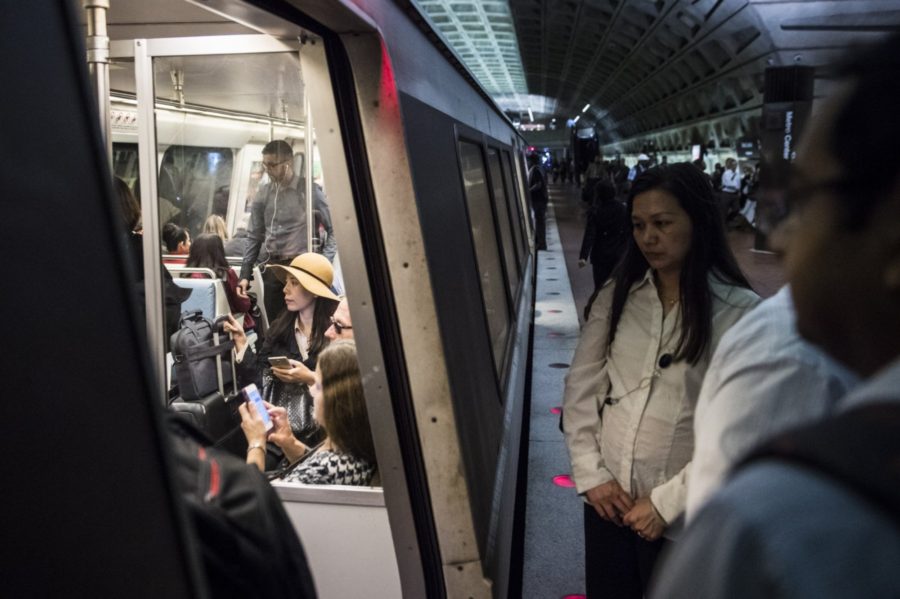If you live in the Washington, DC metro area, you have probably taken Metrorail or Metrobus to your job, hospital, friend’s house, restaurant, or school. If you have, you know of the issues the system faces. And they are deep and systemic. Ever since the major Red Line accident in 2009, Metro has had a watchful eye on its level of safety, reliability, and finances. Needless to say, many people say the system is on the proverbial “death spiral” – decreasing ridership leading to reduced revenue and growing budget deficits, which further exacerbates safety and reliability issues, leading to increasingly more riders leaving the system, and so on. Metro is facing a $415 million budget gap in fiscal year 2017 – $290 million that was projected by the management in its initial budget in addition to the $125 million revealed today by General Manager Paul Wieldfeld due to new information that Metro lost even more riders that earlier predicted in its initial budget.
With the recent increase of conservative thought in Congress and political bodies around the country, I think there are some potential directions that will be looked at by lawmakers when trying to head off the “death spiral:”
Pass it off to the States – Following the Heritage Foundation’s Solutions Budget (which Trump and his administration are following very closely), there could be a push to eliminate the Federal Transit Administration and leave funding of public transit to the local and state jurisdictions. In Metro’s case, this is going to result in even more money being asked from the DC, Maryland, and Virginia legislatures in addition to the increases they are being asked to give this year. This money would likely have to come through increased taxes and/or cuts in other programs, which may not be a popular stance for residents.
Partly (or Fully) Nationalize the System – The federal government could take over WMATA and run it until fiscal order and financial stability are realized. Expect a government led by Republicans to potentially go after labor for significant reductions in salaries and employees and a requirement for more employees to contribute part of their salaries to their retirement and health care to cut costs. In addition, expect an increased incentive to hire private contractors to do work usually allocated for salaried employees of the system.
Partly (or Fully) Privatize the System – Elaine Chao, a former Heritage Foundation Fellow and the current US Department of Transportation Secretary, spoke about the potential of private companies to fund transportation during her confirmation hearing. This stance is in line with President Trump’s position of private industry handling the bulk of new infrastructure projects. The current crop of Republican lawmakers in the federal government, loathe to spend public money on infrastructure and interested on using DC as a test case for their policies, may encourage the partial (or full) privatization of the system. Tokyo, Japan’s system is one that works on a compact between the city government and a private company. Something like this setup will be proposed by conservatives to get Metro out of its financial situation. However, similar to the national takeover options, expect a focus on labor like job reductions, increases in private contractors, and further shifting of the responsibility of retirement and health care contributions from Metro to its employees.
In hearing these ideas – many requiring potential concessions from ATU Local 689, the largest union that represents Metro workers – could there be impetus for a potential strike? According to the union’s legal documents, the union has a “no strike clause, “including in its contract with Metro, the compact that created how the transit agency is governed and as part of a 1970s court ruling. That being said, some members could do a “wildcat” strike, which is striking even if it is not allowed. Furthermore, I expect the renegotiation of the labor contract between Metro and ATU Local 689 to be acrimonious, with many outside voices weighing in on whether to expand or constrict labor rights.
Whatever the case may be, something drastic – something not done before in the era of public transit in the United States – is going to happen to Metro. Financially it just is not working. It is losing riders. It has the perception among many residents as being unsafe, unreliable, and downright too expensive. Conservatives, who dominate in Virginia and in the federal government, are going to want to see reforms in employee contracts and changes in governance before even thinking about contributing more dollars to the system.
Uncertain times indeed.





Leave a Reply